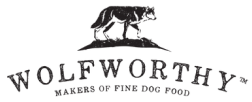
These 3 Simple Changes Can Stop Your Dog Being Obese
We recently read some reports in the newspaper that really made us want to write a post about dog obesity. These reports were pretty sobering about the rise of obesity in dogs but were lacking in actionable steps or advice for their owners. We, hand on hearts, believe dog owners want their dogs to be a fit and healthy weight and if given the choice would make changes that benefit their dog. Here are 3 things you can do to make sure your dog is as fit as can be, but first of all:
Why does it matter?
The RSPCA’s definition of obesity is ‘An excess of body fat that is enough to impair health, welfare and quality of life’.
Surprisingly, your dog only needs to be 10% over the breed standard’s weight to be classed as obese. This doesn’t sound like much, right? But obesity comes with some nasty friends, such as reduced life span (even in moderately overweight dogs), heart disease, liver disease, arthritis, shortness of breath and musculoskeletal problems. It is simple. Overweight dogs just don’t live as long as those of a healthy weight.
Don’t fear, most dog owners don’t know how much their dog should weigh. Find out the breed standard and your dog’s current weight. Bear in mind there can be a large variation within the standard but if your dog is over the top end then you probably need to take action.
To find out how to check if your dog is obese click here:
https://wolfworthy.co.uk/blogs/word-of-the-wolf/3-easy-ways-to-test-if-your-dog-is-obese
1. Weigh your dog’s food
Use a digital scale a weigh your dog's food every time. Doing it 'by eye' will generally lead to feeding too much.
Remember feeding guides are just that – a guide. What is sufficient for one dog may be too much for another (even in the same breed). Keep your eye on your dog’s weight and make adjustments if you need to. This might require a little trial and error but is worth it if it extends the life of your best friend!
Feed a high protein, quality food. The first AND main ingredient should be meat – more satisfying for your dog, they feel full and will be less inclined to beg.
Your dog’s needs change as they grow. Puppies and growing dogs have higher calorie needs to support their growth. An adult dog will need less depending on their level of activity. Working dogs will need more than a family dog walking for 30 mins twice a day.
Keep in mind what your dog’s energy requirements REALLY are, and adjust the amount of food accordingly. Remember – most dogs exercise less in the winter and more in the summer, make allowances for this.
Wolfworthy is suitable for ALL ages of dog.
2. If you give treats, deduct it from your dog’s daily allowance
Too many treats can really send your dog's weight soaring. This can be a big problem in a busy household where the kids and parents are all giving Buster a treat on the way past. Get together as a team and agree on the rules!
Do not feed human food, it is bad for them and treats such as scraps from the table add pounds. Biscuits and cakes are full of sugar and salt which are equally bad for your dog. If you are training, grab a handful from your dog’s daily allowance of its own food or choose treats that are natural and mainly meat then reduce the main meal slightly.
If you find it hard to ignore your dog when they are begging (and who doesn’t?) repeat the mantra – I am killing with kindness. If your dog has been fed so isn’t really hungry you must ignore them. If you give in once, your dog will remember and only beg for longer next time. This can become an unwanted behavioural problem meaning the dog gets into the habit of begging.
Keep their routine consistent, even on holiday and at Christmas. There are a lot of unhealthy treats marketed towards dog owners such as birthday cakes and Christmas stockings – if you do decide to give these, adjust their overall daily intake to compensate. As an alternative, your dog may prefer another walk, a back scratch or a healthy, natural treat instead.
3. Do not skip the daily walk
To remain fit and healthy and not gain excess weight your dog needs daily exercise. Sadly, some dogs are never walked, owners mistakenly think letting the dog out in the garden for half an hour is enough – it isn’t. There will always be days when walking is hard to fit in but it is what you do 99% of the time. It’s part of being a good dog owner. The thing is, once your dog is overweight, exercise just gets harder. Breathing and joints are put under strain meaning exercise becomes difficult. Thankfully, it is never too late to help your dog.
Click here to read more about how to reduce your dog’s weight:
https://wolfworthy.co.uk/blogs/word-of-the-wolf/how-can-i-help-my-dog-to-lose-weight
Do not let your dog sleepwalk into obesity. According to the PDSA (UK’s leading vet charity) one-third of the UK’s dogs are now overweight and when asked which three issues will have the biggest health and welfare implications in 10 years time they picked obesity as the top one.
Three simple, actionable steps which are worth taking to improve the length and quality of your dog’s life.
- Measure the food
- If you treat, reduce the food
- Walk every day
Wolfworthy is the dry alternative to raw, providing all the health benefits without the hassle.
- No mess, no fuss – easy to store, serve, and travel with
- Loved by fussy eaters – irresistible taste for even the pickiest dogs
- Gentle on sensitive stomachs – supports healthy digestion
Qty :
Qty :









